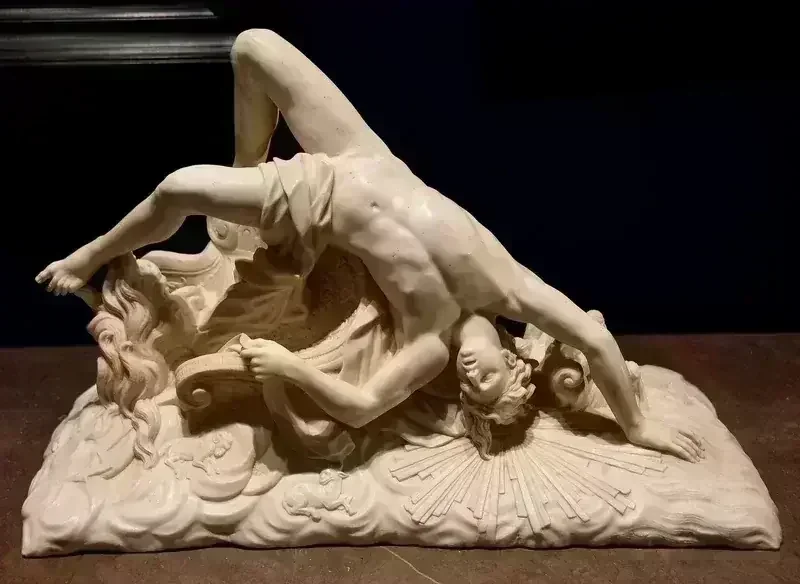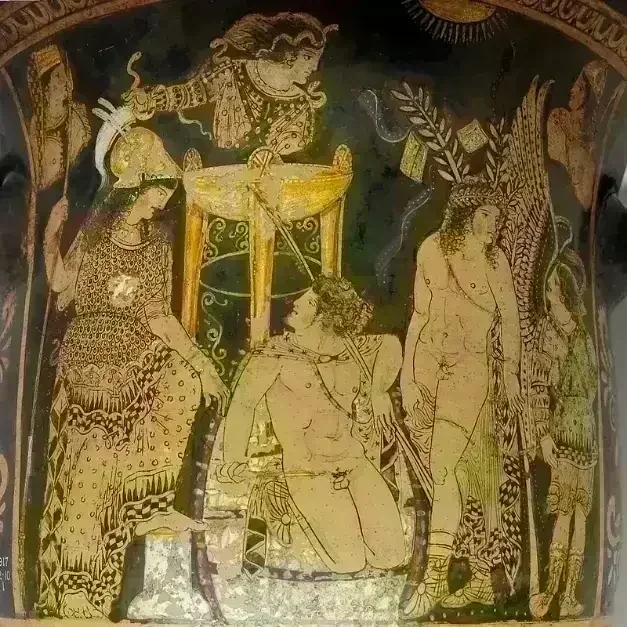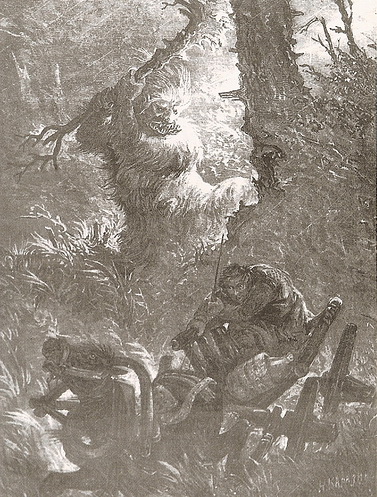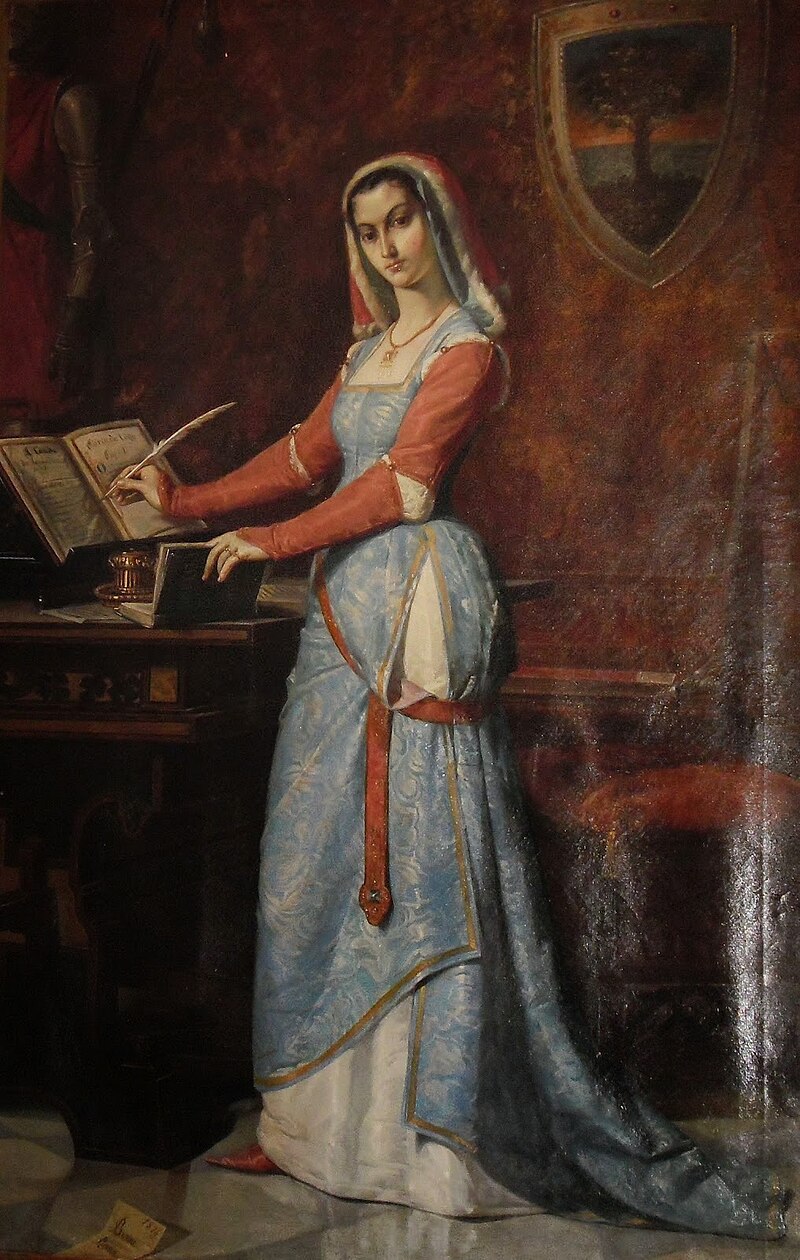Phaethon

Phaethon (/ˈfeɪ.əθən/; Ancient Greek: Φαέθων, romanized: Phaéthōn, meaning "shiner," pronounced [pʰa.é.tʰɔːn]), also spelled Phaëthon, is the son of the Oceanid Clymene and the sun god Helios in Greek mythology.
According to most versions of the myth, Phaethon, eager to confirm his parentage, travels to his father Helios's palace in the East. Upon being recognized by his father, Phaethon asks to drive Helios's sun chariot for a day. Despite Helios's strong objections, warning his son about the numerous dangers of the task and reminding him that only he has the skill to control the powerful horses, Phaethon remains determined and refuses to change his mind.
Reluctantly, Helios agrees, but the journey ends in disaster. Unable to control the horses, Phaethon first drives the chariot too close to the Earth, scorching it, then steers it too far away, freezing it.
After the chaos, with complaints from the Earth and the stars above, Zeus strikes Phaethon with a lightning bolt, killing him instantly. His lifeless body falls into the river Eridanus, and his grieving sisters, the Heliades, mourn by shedding tears of amber. In their sorrow, they are transformed into black poplar trees.
Phaethon's story was often used to explain the existence of harsh, uninhabitable regions like deserts and frozen wastelands, as well as to account for the darker complexions of certain peoples. The amber tears of his sisters were said to explain the rich deposits of amber found in the river.


